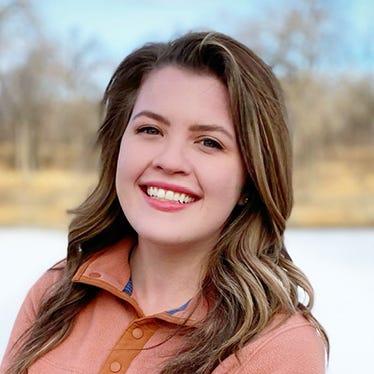
If farm families have sick kids, or if the farmer or spouse needs medical attention, the last thing they want to worry about is how to pay the medical bill.
Krystil Smit, executive director of South Dakota Farm Bureau, talks about the differences in health coverage on the market, some of the options many state Farm Bureau members have access to, and how to decide what type of coverage might be best for different circumstances.
How can farmers save money and still cover their families for health care needs?
The Farm Progress podcast — FP Next — powered by John Deere, set out to answer this question and more recently in a Deep Dive episode.
Burning questions
Gleaned from the podcast, here are some of the questions Smit answered, giving insights on how to decide what type of health coverage you need for your family:
What are the basic considerations for health coverage for a family? One of the most common questions we get is, “Can you help us with health care costs?” Most farmers and ranchers are self-employed, and there is often a huge barrier in terms of access and affordability of health care for them.
As many know, a lot of times, one of the spouses needs to have off-farm employment to access that health care coverage for the family. Today, we are in our third year of offering South Dakota Farm Bureau health plans.
Finding health coverage can be very complicated. People go to the marketplace and view plans and try to figure out what is best for their family. Farm Bureau plans are very similar to plans on the marketplace today.
Families should take stock in their present family situation. Do you have children? Are you later in life? We also have Medicare plans. So, SDFB plans can meet every family where they are at, based on their needs. There are different offerings in terms of deductibles and co-pays, which impact premiums as well.
I would suggest, every year, taking time to compare current health care coverage and see what is out there and offered.
How do you decide deductibles and the type of coverage you need for your family situation? As you go into making those decisions, household budgets come into play, along with the health and age of your family.
When our kids were little, we went to the doctor a lot. There were well-baby visits. It seemed like the kids were constantly being seen at the doctor’s office. As they grow older, the problems get bigger, broken bones and things like that. So, it kind of depends on what is happening with your family.
If you choose deductibles more in the moderate range, premiums are going to be higher. Some families are all right with a higher premium if they know that they have full coverage if anything happens.
I know a family with children who experienced an ATV accident at the same time they were having a brand-new baby. They incurred a lot of medical expenses within three days. They were at the hospital waiting to be induced into labor for their fourth baby boy when their oldest boy was involved in an ATV accident that required an air ambulance to the hospital.
The mother told me that she was focused on fighting for her oldest son’s life while waiting for the arrival of their fourth child to come into the world. The last thing they wanted to worry about was what it was all going to cost.
They fortunately chose a “Cadillac” version of health care plans. Thinking about deductibles and out-of-pocket maximums, their plans cover annual doctor visits, about anything you see a doctor for, and co-pay is the only expense.
There are other plans, where basically the deductibles go up. A lot of family farms can absorb larger expenses all at once. Family farmers might be able to come up with larger deductibles because they maybe don’t go to the doctor as much, and they have an older family, for instance. You have to look at all the options.
How do you balance between affordability and what you need for coverage? I’ve talked with several people using our health plans, from families with small children and teens to empty nesters. Many want peace of mind with their coverage. There are always surprises with medical issues.
So, you need to ask yourself if you would rather just pay a $25 co-pay and have low deductibles, so you know you won’t be caught by a surprise. Or do you have money put away so you can absorb a major medical event? It’s all about planning and the stage of life for your family.
To listen to the entire podcast with Smit, and other episodes of FP Next, visit farmprogress.com/program/fp-next.
Read more about:
Rural HealthAbout the Author(s)
You May Also Like








